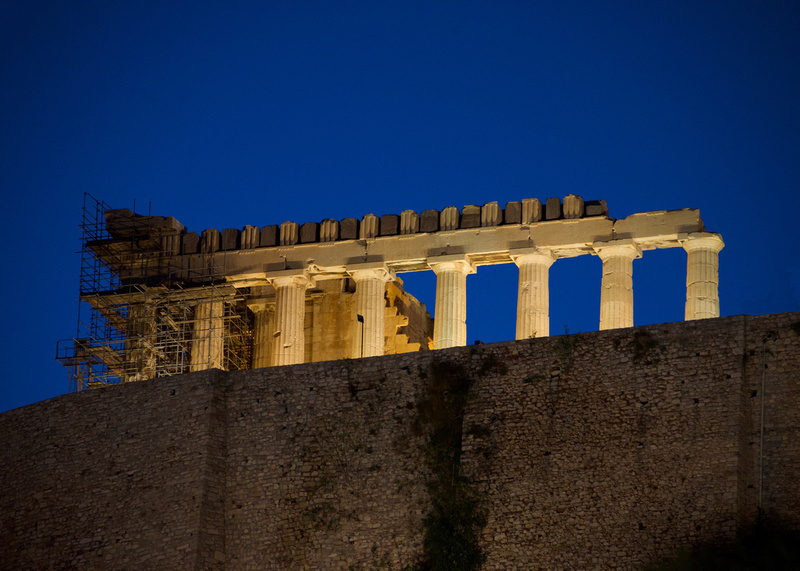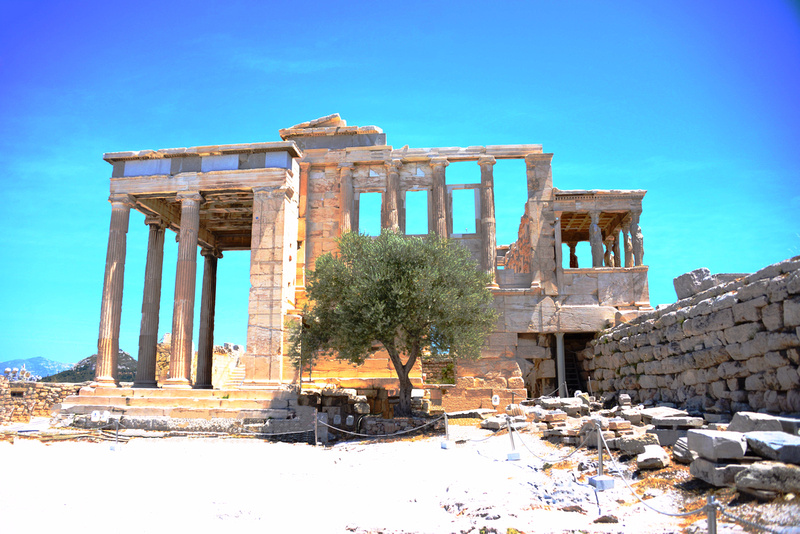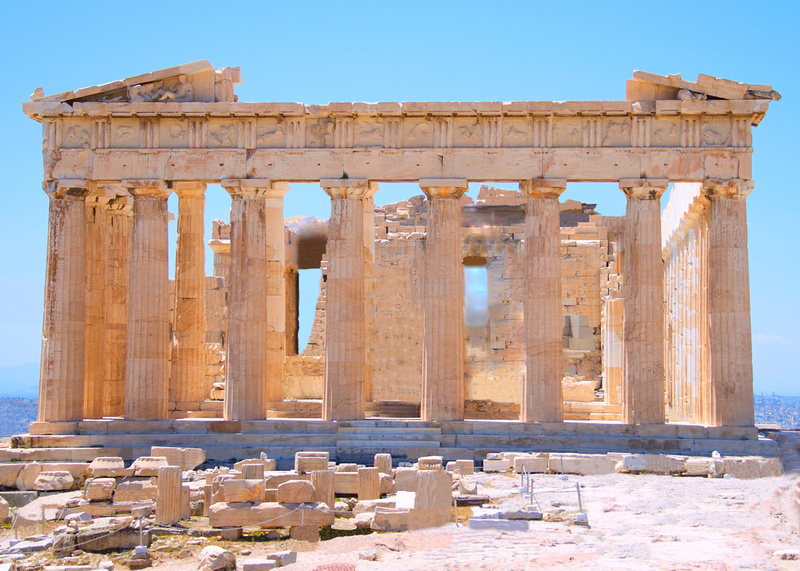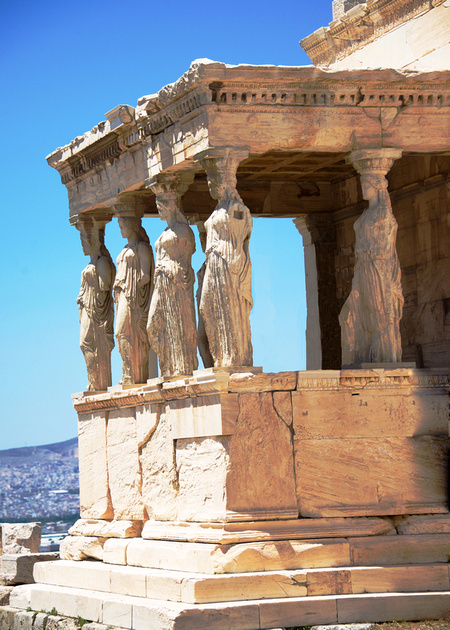Our Athenian Walking Tour Stop 1
Welcome to "Our Athenian Walking Tour Stop 1" ~ Memor Spiritus
Stop one - The Acropolis
PARTHENON AT NIGHT
Legend has it that when it came to determining which god would be the patron deity
of Athens, both Athena and Poseidon responded as wanting the position.
The contest took place in the Acropolis, where both gods were asked
to present their gifts to the city. Poseidon went first and raised his trident,
smashing it on a rock of the Acropolis, thus, producing salt water.
Athena went second and offered an olive tree, a gift the citizens deemed
useful and beautiful; therefore, she became the patron of the city,
which was named after her.
THE SACRED OLIVE TREE
The Parthenon (or Parthenonas) is a former temple on the Athenian Acropolis,
dedicated to the goddess Athena, whom the people of Athens considered their patron.
Construction began in 447 BC when the Athenian Empire was at the peak of its power
and was completed in 438 BC. It is the most important surviving building of Classical Greece
and it's decorative sculptures are considered some of the high points of Greek art.
The Parthenon is regarded as an enduring symbol of Ancient Greece, Athenian democracy
and Western Civilization, and one of the world's greatest cultural monuments. To the Athenians
who built it, the Parthenon was seen as a celebration of Hellenic victory over the Persian
invaders and as a thanksgiving to the gods for that victory.
THE PARTHENON
While the Parthenon was the most impressive temple on the Acropolis, another building,
the Erechtheion, was built as a replacement for the "Old Temple" (the foundations
of which now lay between it and the Parthenon), and to house all the shrines and rituals
that once took place there. Construction of the Erechtheion began in 420 and was
concluded in 406 BC; soon thereafter, in 403 BC Athens fell to the Spartans.
The Erechtheion is an intricate temple. It sprang from a complex plan that was designed
to accomodate the radically uneven ground on the site. The east end of the
Erechtheion was dedicated to Athena Polias (protector of the earth and fertility)
and housed the ultra-sacred wooden diipetes (fallen from the heavens)
xoano (statue) of Athena. The west part of the building was devoted to
Poseidon - Erechtheus, and sheltered the marks on the rock where
Poseidon struck with his trident during his contest with Athena.
The elegance and delicate forms of the Erechtheion contrast sharply with the
neighboring Parthenon that counter-balances the architectural complex with its
majestic, Doric presence. The temple faces east and its entrance is lined with six
long lonic columns. The temple is unusual in that it incorporates two porches
(prostaseis); one at the northwest corner which is supported by tall lonic columns,
and one at the south-west corner which is supported by six
massive female statues, the famous Caryatids.
The Caryatids have become the temple's signature feature, as they stand and
seem to casually support the weight of the porch's roof on their heads.
The Caryatids on site today are exact replicas, while the originals are protected
by the corrosive air of modern Athens in the Acropolis museum. One of the six
Caryatids can be seen in the London museum having been appropriated
by Lord Elgin along with the Parthenon marbles.
THE PORCH OF THE CARYATIDS - ERECHTHEION
Be sure to read more blogs about "The Story Behind the Pictures" from these great Memor Spiritus Artists.
PLEASE check out all of the wonderful photographs on this unique site memorspiritusllc.zenfolio.com.
Buy your ATHENS GREECE Prints Today, simply "click" on any pic in this blog to go straight to Checkout!
ALL ORIGINAL ARTWORK AVAILABLE ON OUR WEBSITE




